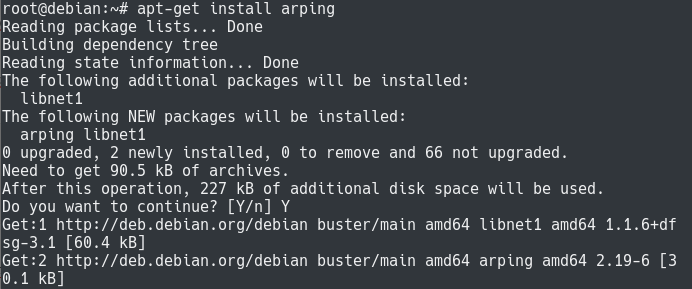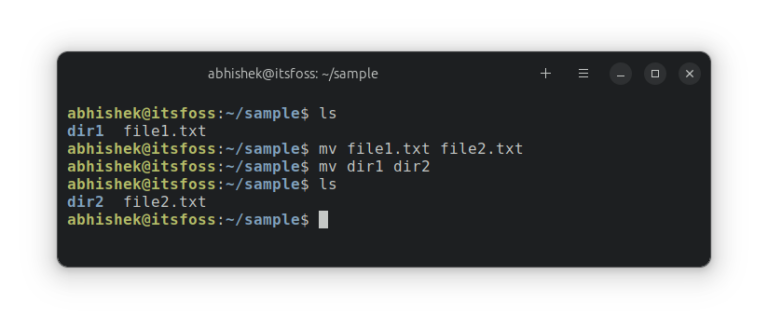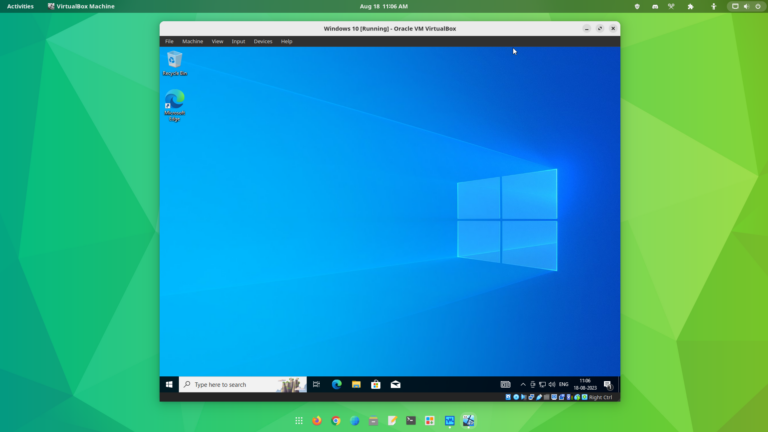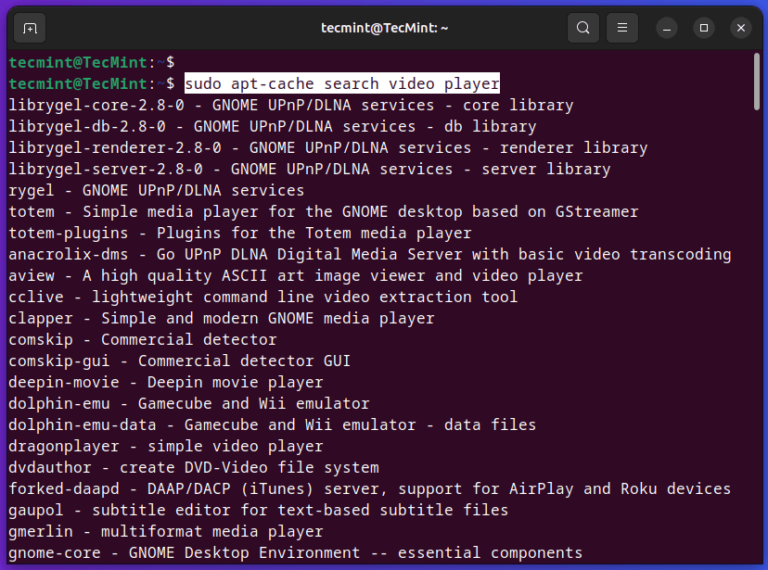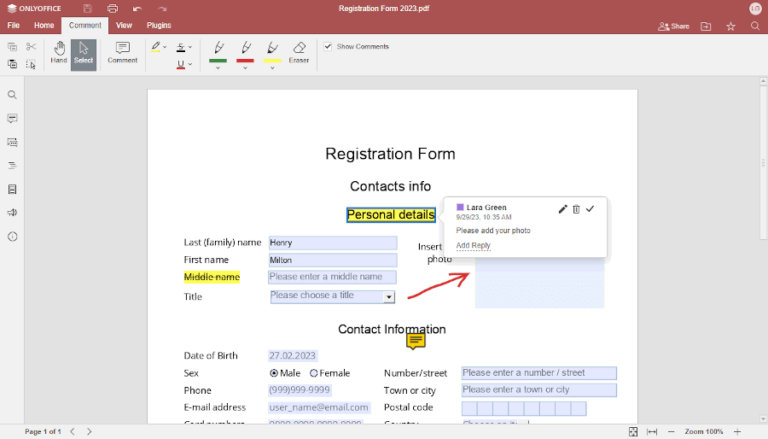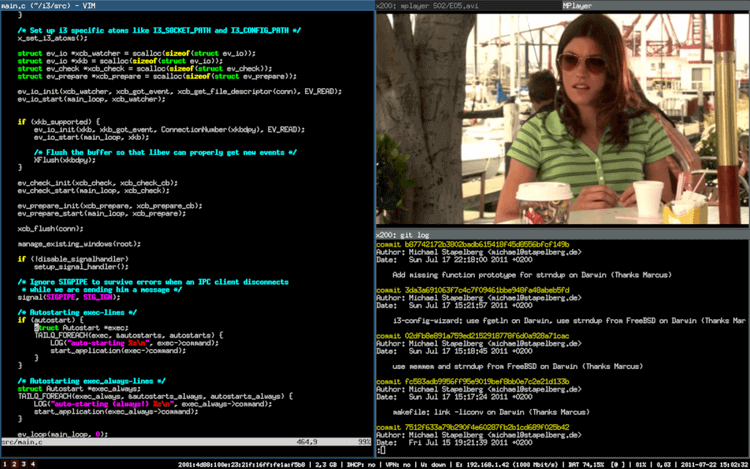15 Best Open Source Music Making Software for Linux
Are you a music producer and use Linux as your primary operating system, then music production is going to become easy for you after reading this article.
There is good music production software in Linux just as it is in Windows and Mac OS, though a few features may vary, but the underlying functionalities mostly are the same.
Here, I will look at some free and open-source software that you can use for music production purposes or music creation in Linux.
1. Audacity
Audacity is a free, open-source, cross-platform audio recording and editing application that runs on Linux, Mac OS X, Windows, and other operating systems, offering features such as:
- Records live audio through a microphone, a mixer, or from other media.
- Import and export files from and to different sound formats.
- Copy, cut, paste, and delete options for easy editing.
- Large range of keyboard shortcuts.
- Add sound effects.
- Extensible with various plug-ins and many more.
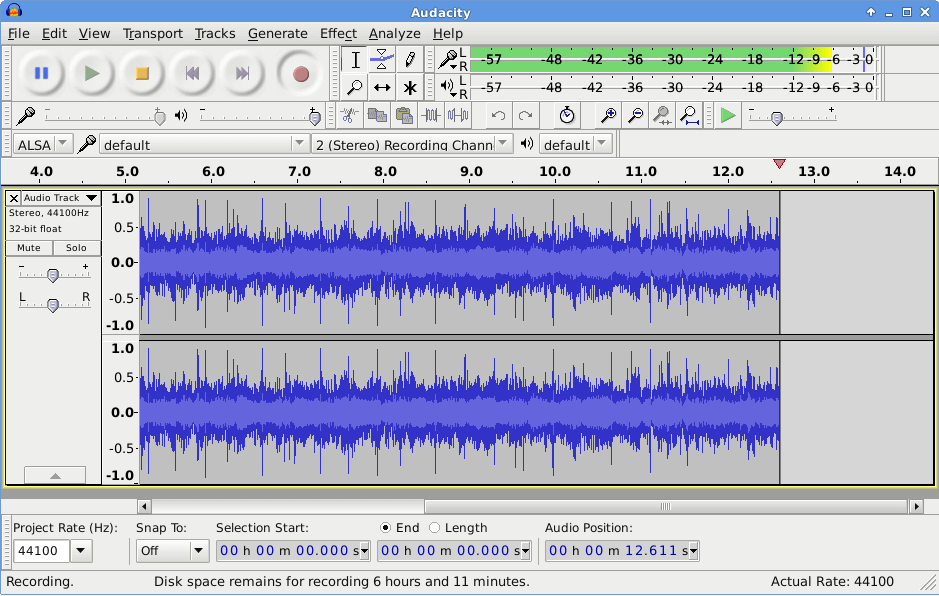
To install Audacity in Linux, run:
$ sudo apt install audacity [On Debian, Ubuntu and Mint] $ sudo yum install audacity [On RHEL/CentOS/Fedora and Rocky/AlmaLinux] $ sudo emerge -a sys-apps/audacity [On Gentoo Linux] $ sudo apk add audacity [On Alpine Linux] $ sudo pacman -S audacity [On Arch Linux] $ sudo zypper install audacity [On OpenSUSE]
2. Cecilia
Cecilia is an audio signal processing software that allows users to do sound exploration and music composition, and it is intended for use by sound designers. It can run on Linux, Windows, and Mac OS X.
It allows you to create a customized GUI (grapher, sliders, toggles, popup menus) by following a simple syntax. Cecilia has built-in modules that allow users to add sound effects and also for synthesis.
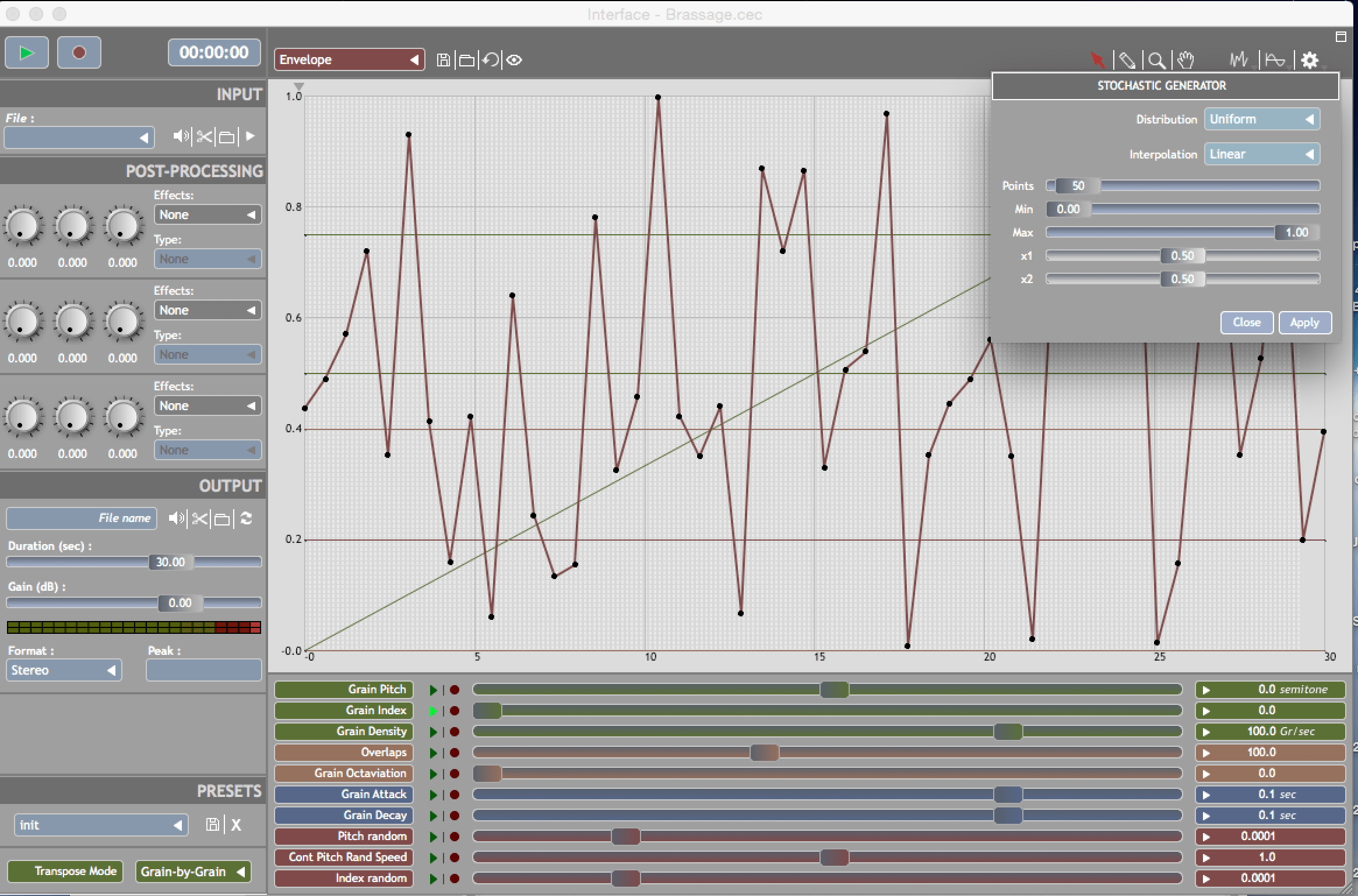
To install Cecilia in Linux, run:
$ sudo apt install cecilia [On Debian, Ubuntu and Mint] $ sudo yum install cecilia [On RHEL/CentOS/Fedora and Rocky/AlmaLinux] $ sudo emerge -a sys-apps/cecilia [On Gentoo Linux] $ sudo apk add cecilia [On Alpine Linux] $ sudo pacman -S cecilia [On Arch Linux] $ sudo zypper install cecilia [On OpenSUSE]
3. Mixxx
Mixxx is a music mixing software that can help you become a professional DJ. It is available on Linux, Mac OS X, and Windows. It can help you test your audio after completing production by mixing it with other audio files while listening to it.
Therefore having it in a studio can be so helpful just in case the user is also a sound producer.
It has some of the following features:
- Four decks with advanced controls.
- In-built sound effects.
- Quad sampler decks.
- Designer skins.
- Record and broadcast functionality.
- DJ hardware support and many more.
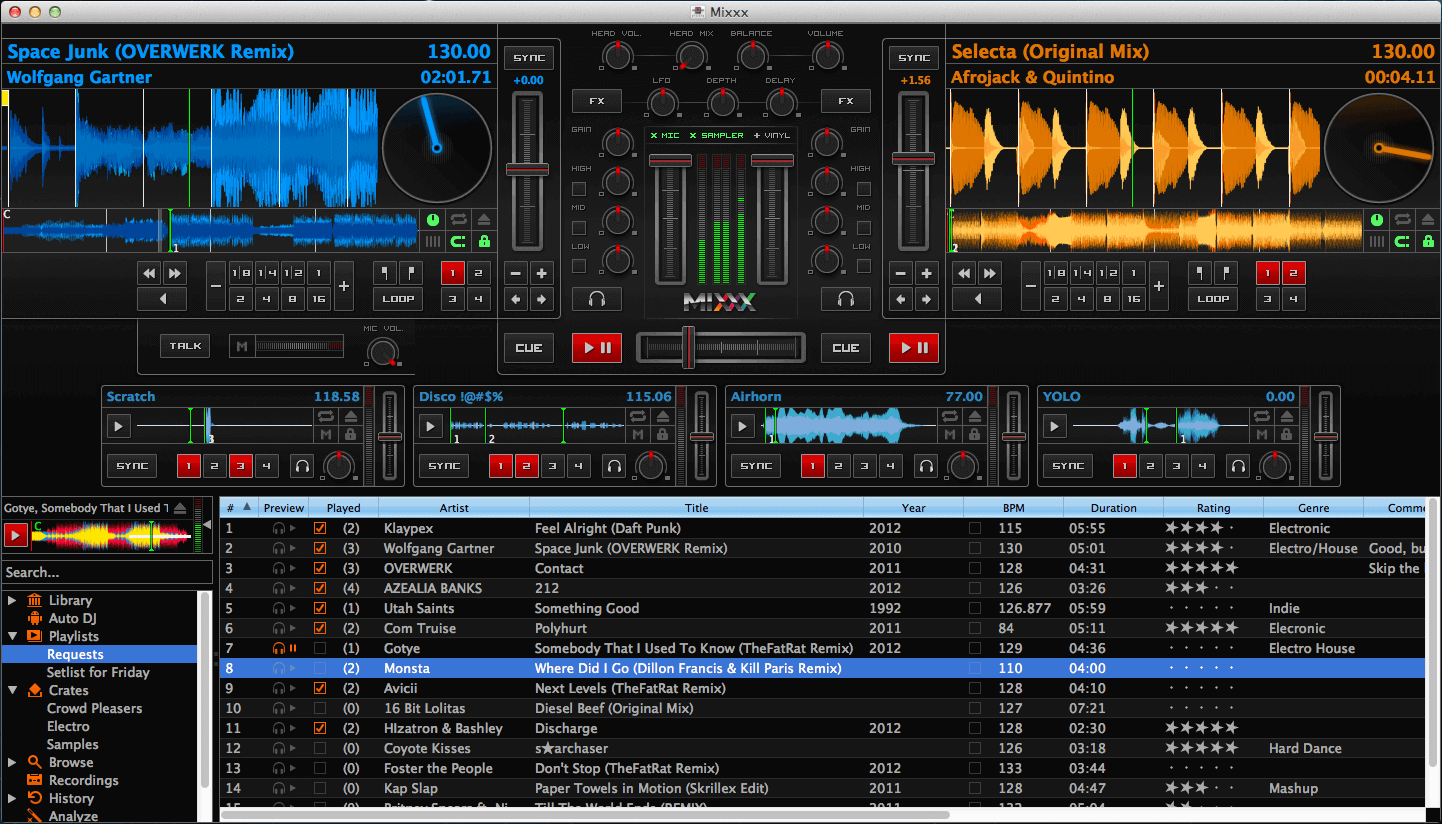
To install Mixxx in Linux, run:
$ sudo apt install mixxx [On Debian, Ubuntu and Mint] $ sudo yum install mixxx [On RHEL/CentOS/Fedora and Rocky/AlmaLinux] $ sudo emerge -a sys-apps/mixxx [On Gentoo Linux] $ sudo apk add mixxx [On Alpine Linux] $ sudo pacman -S mixxx [On Arch Linux] $ sudo zypper install mixxx [On OpenSUSE]
4. Ardour
Ardour is an open-source, digital audio workstation software that offers recording, editing, and mixing capabilities, catering to musicians, audio engineers, and producers. Compatible with Linux, macOS, and Windows, Ardour is a versatile tool for professional audio production.
Ardour has some of the following features:
- Flexible recording.
- Unlimited multichannel tracks.
- Importing and exporting audio files of different formats.
- Extensible through plug-ins and In-line plug-in control.
- Automation and many more.
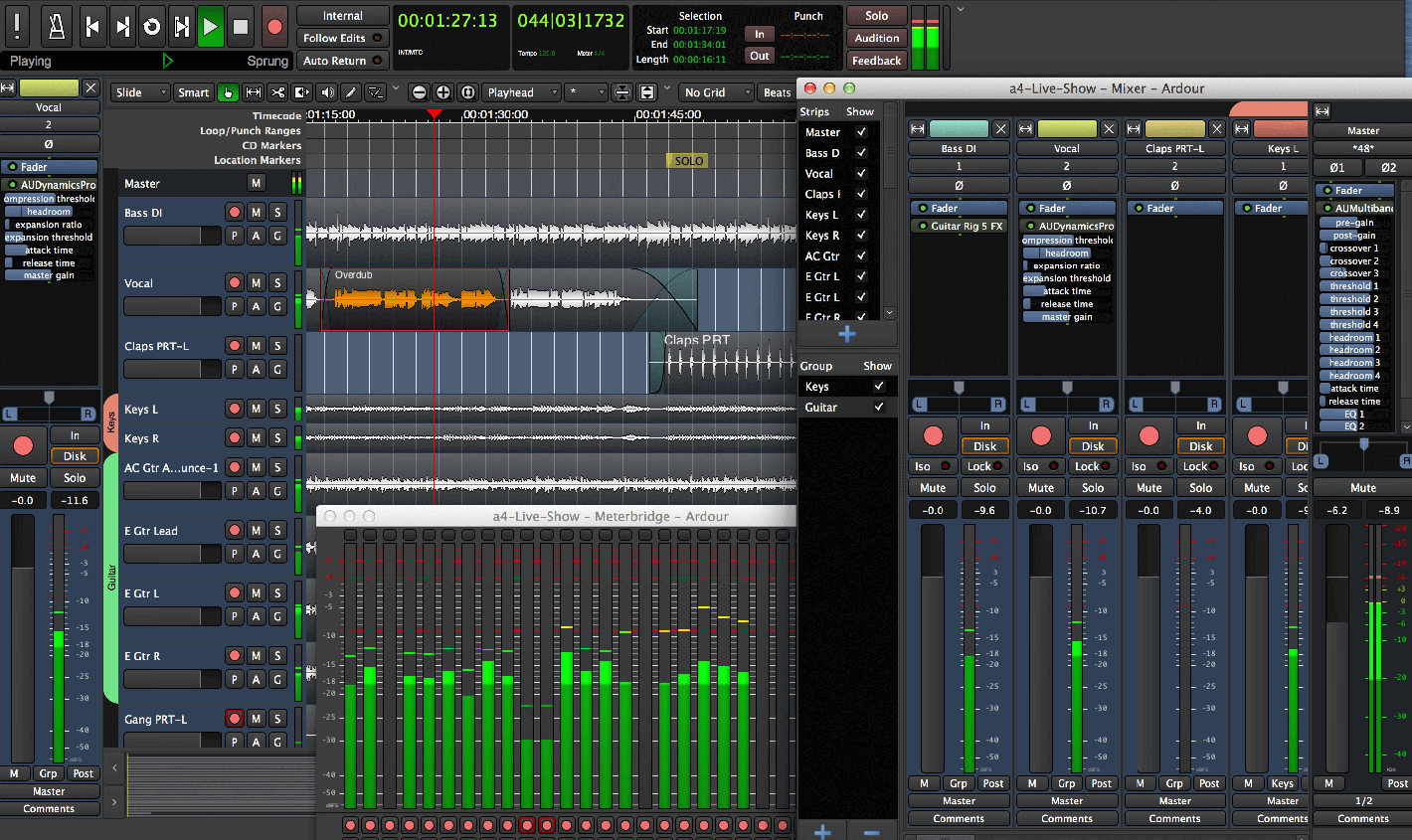
To install Ardour in Linux, run:
$ sudo apt install ardour [On Debian, Ubuntu and Mint] $ sudo yum install ardour [On RHEL/CentOS/Fedora and Rocky/AlmaLinux] $ sudo emerge -a sys-apps/ardour [On Gentoo Linux] $ sudo apk add ardour [On Alpine Linux] $ sudo pacman -S ardour [On Arch Linux] $ sudo zypper install ardour [On OpenSUSE]
5. Hydrogen Drum Machine
Hydrogen drum machine is an open-source, digital audio software tailored for creating beats. It offers intuitive pattern-based sequencing, high-quality samples, and a user-friendly interface, making it a favorite among both novices and professional music producers.
Hydrogen machine has some of the following features:
- User-friendly and modular
- Fast and intuitive GUI
- Pattern-based sequencer
- Multilayer instrument support
- Jack audio connection kit
- Import and export drum kits and also export audio files to different formats plus many more
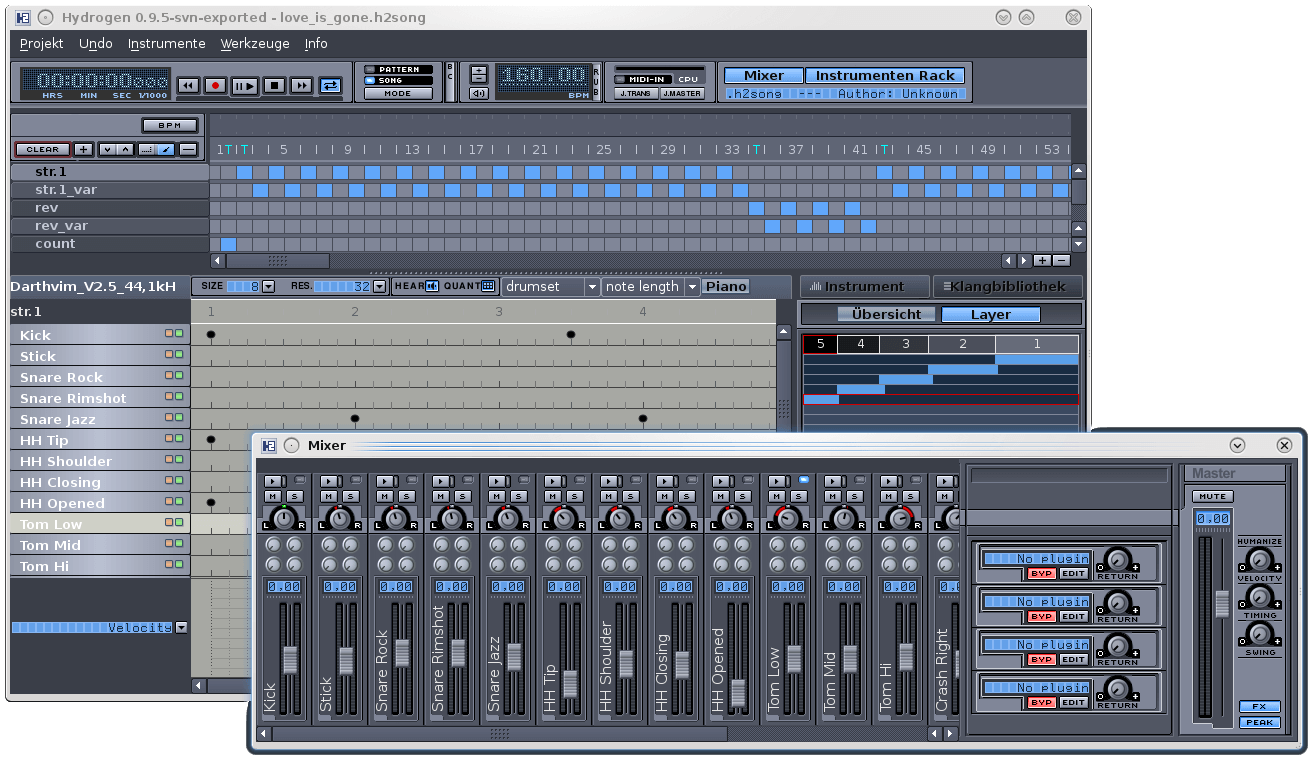
To install Hydrogen in Linux, run:
$ sudo apt install hydrogen [On Debian, Ubuntu and Mint] $ sudo yum install hydrogen [On RHEL/CentOS/Fedora and Rocky/AlmaLinux] $ sudo emerge -a sys-apps/hydrogen [On Gentoo Linux] $ sudo apk add hydrogen [On Alpine Linux] $ sudo pacman -S hydrogen [On Arch Linux] $ sudo zypper install hydrogen [On OpenSUSE]
6. Guitarix
Guitarix is a virtual guitar amplifier available on Linux (but buildable for BSD and Mac OS X), operates on the Jack audio connection kit, processing guitar signals through a mono amp and rack section, with integrated modules for adding effects.
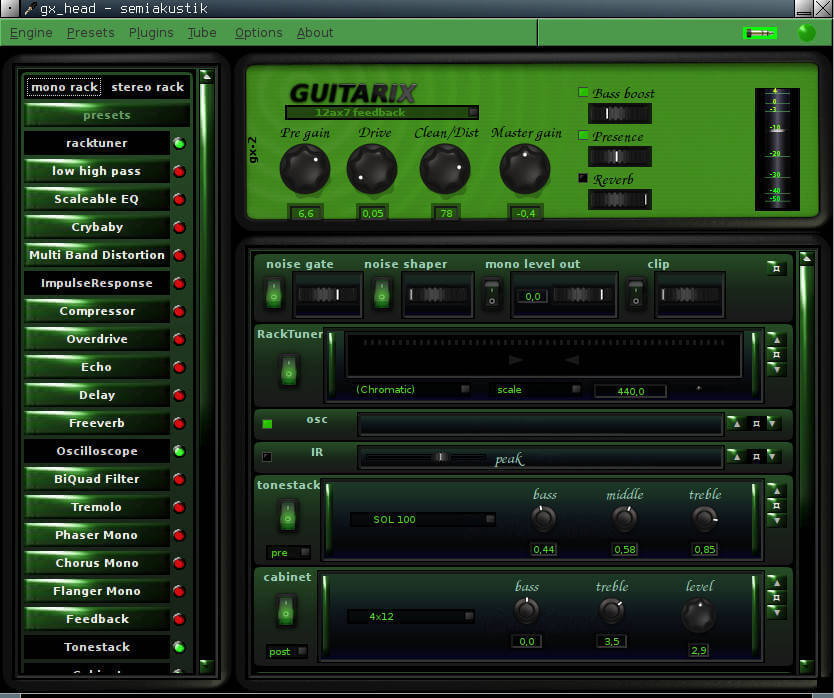
To install Guitarix in Linux, run:
$ sudo apt install guitarix [On Debian, Ubuntu and Mint] $ sudo yum install guitarix [On RHEL/CentOS/Fedora and Rocky/AlmaLinux] $ sudo emerge -a sys-apps/guitarix [On Gentoo Linux] $ sudo apk add guitarix [On Alpine Linux] $ sudo pacman -S guitarix [On Arch Linux] $ sudo zypper install guitarix [On OpenSUSE]
7. Rosegarden
Rosegarden is a music composing and editing application available on Linux and it is intended for use by music composers, musicians can be used in a home or small-scale recording environment.
A great understanding of music notations makes it interesting for users who know and understand music notations. Furthermore, it also has some basic support for digital audio.
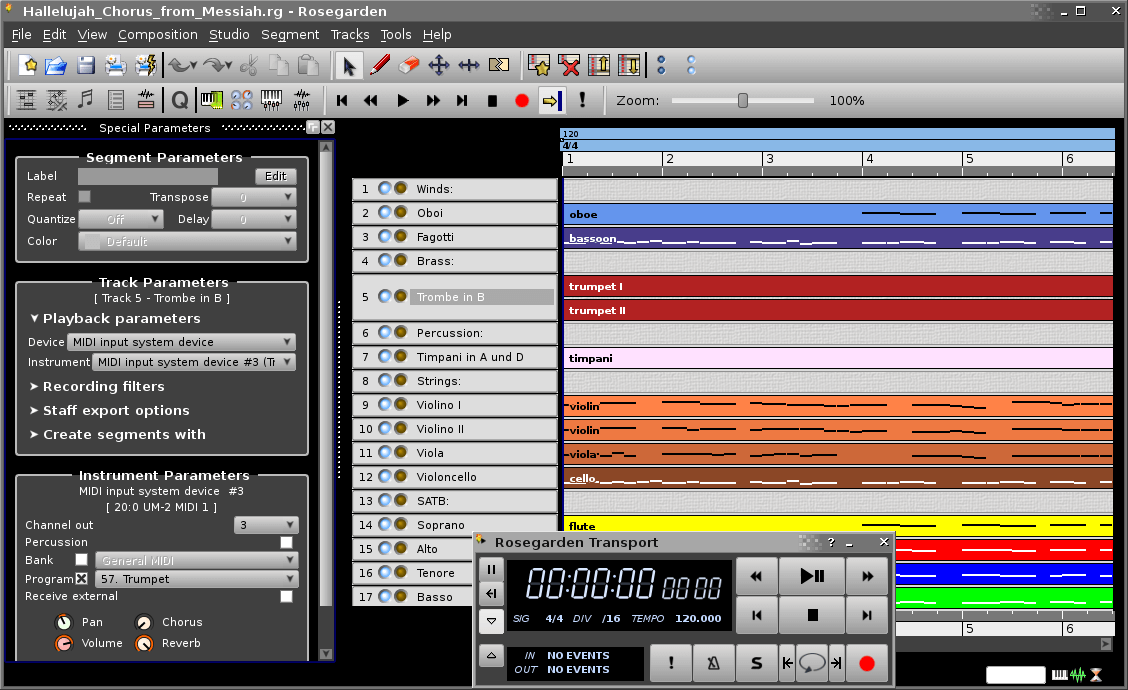
To install Rosegarden in Linux, run:
$ sudo apt install rosegarden [On Debian, Ubuntu and Mint] $ sudo yum install rosegarden [On RHEL/CentOS/Fedora and Rocky/AlmaLinux] $ sudo emerge -a sys-apps/rosegarden [On Gentoo Linux] $ sudo apk add rosegarden [On Alpine Linux] $ sudo pacman -S rosegarden [On Arch Linux] $ sudo zypper install rosegarden [On OpenSUSE]
8. Qtractor
Qtractor is an audio Audio/MIDI multi-track sequencer designed specifically for personal home studios. It runs on Linux as the target operating system.
It has some of the following features:
- Use of Jack Audio Connection Kit for audio and Advanced Linux Sound Architecture sequencer for MIDI as multimedia infrastructures.
- Support for different audio formats such as WAV, MP3, AIFF, OGG, and many more.
- In-built mixer and monitor controls.
- Loop recording.
- MIDI clip editor.
- Non-destructive and non-linear editing.
- Extensible through an unlimited number of plug-ins plus many more.
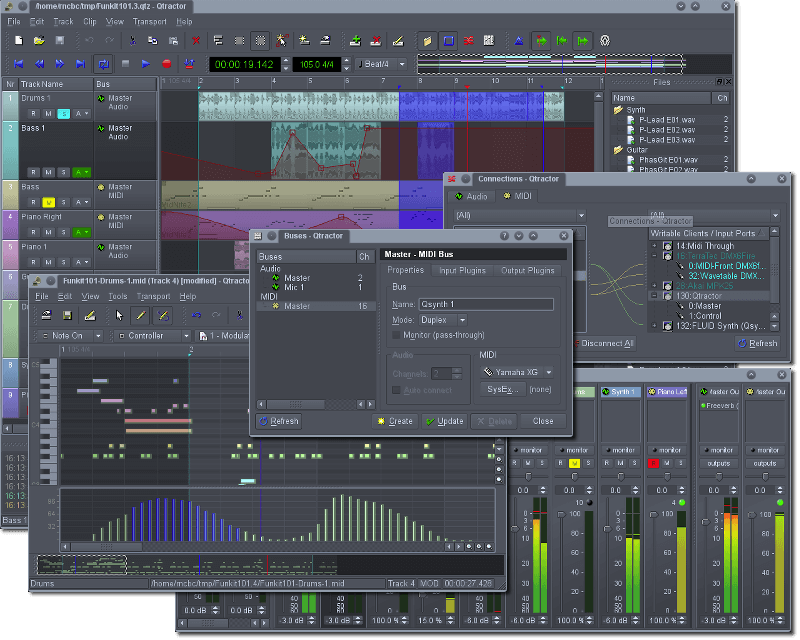
To install Qtractor in Linux, run:
$ sudo apt install qtractor [On Debian, Ubuntu and Mint] $ sudo yum install qtractor [On RHEL/CentOS/Fedora and Rocky/AlmaLinux] $ sudo emerge -a sys-apps/qtractor [On Gentoo Linux] $ sudo apk add qtractor [On Alpine Linux] $ sudo pacman -S qtractor [On Arch Linux] $ sudo zypper install qtractor [On OpenSUSE]
9. LMMS
LMMS (Let’s Make Music) is a free, open-source, and cross-platform software for making music on your computer, made by musicians, for musicians. It comes with a user-friendly and modern interface.
LMMS also comes with playback instruments, samples, and plugins. It is bundled with ready-to-use content such as a collection of instrument and effect plugins, presets, and samples to VST and SoundFont support.
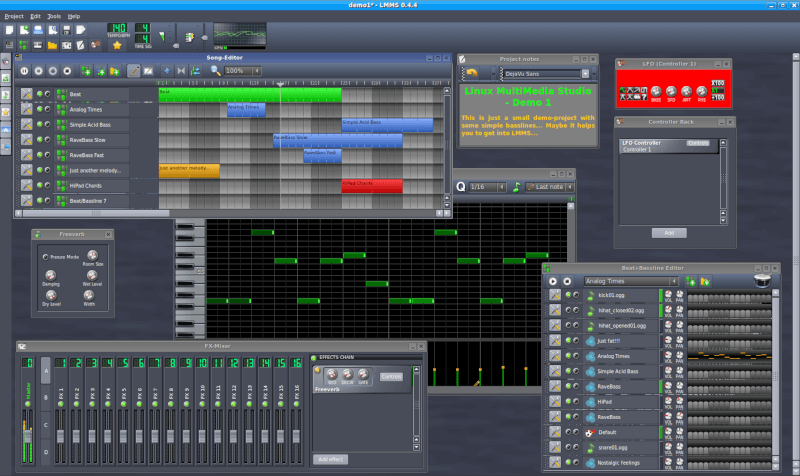
To install LMMS in Linux, run:
$ sudo apt install lmms [On Debian, Ubuntu and Mint] $ sudo yum install lmms [On RHEL/CentOS/Fedora and Rocky/AlmaLinux] $ sudo emerge -a sys-apps/lmms [On Gentoo Linux] $ sudo apk add lmms [On Alpine Linux] $ sudo pacman -S lmms [On Arch Linux] $ sudo zypper install lmms [On OpenSUSE]
10. MuseScore
MuseScore is also a free, open-source, and easy-to-use, yet powerful tool for creating, playing, and printing beautiful sheet music.
It supports input via the MIDI keyboard and also supports exporting to and from other programs via MusicXML, MIDI, and more.
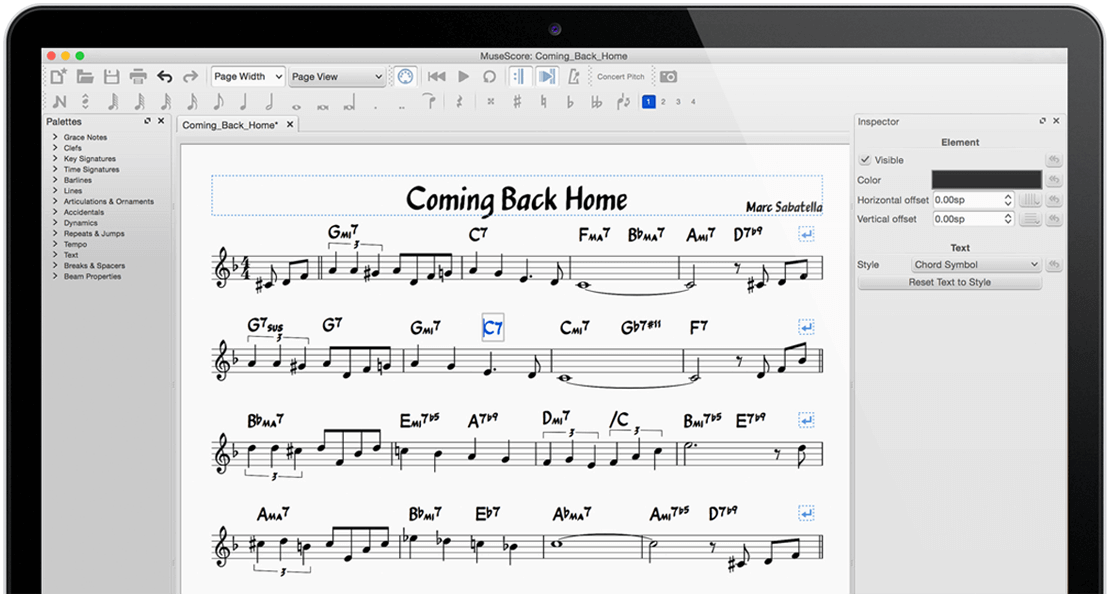
To install MuseScore in Linux, run:
$ sudo apt install musescore [On Debian, Ubuntu and Mint] $ sudo yum install musescore [On RHEL/CentOS/Fedora and Rocky/AlmaLinux] $ sudo emerge -a sys-apps/musescore [On Gentoo Linux] $ sudo apk add musescore [On Alpine Linux] $ sudo pacman -S musescore [On Arch Linux] $ sudo zypper install musescore [On OpenSUSE]
11. Renoise [Not Open Source]
Renoise is a premium, powerful, cross-platform, and fully-featured Digital Audio Workstation (DAW) with a unique top-down approach.
Renoise features a wide range of modern features that allow you to record, compose, edit, process, and render production-quality audio using a tracker-based approach. Importantly, it comes with Redux, a powerful yet affordable sampler, and sequencer in the VST/AU format.
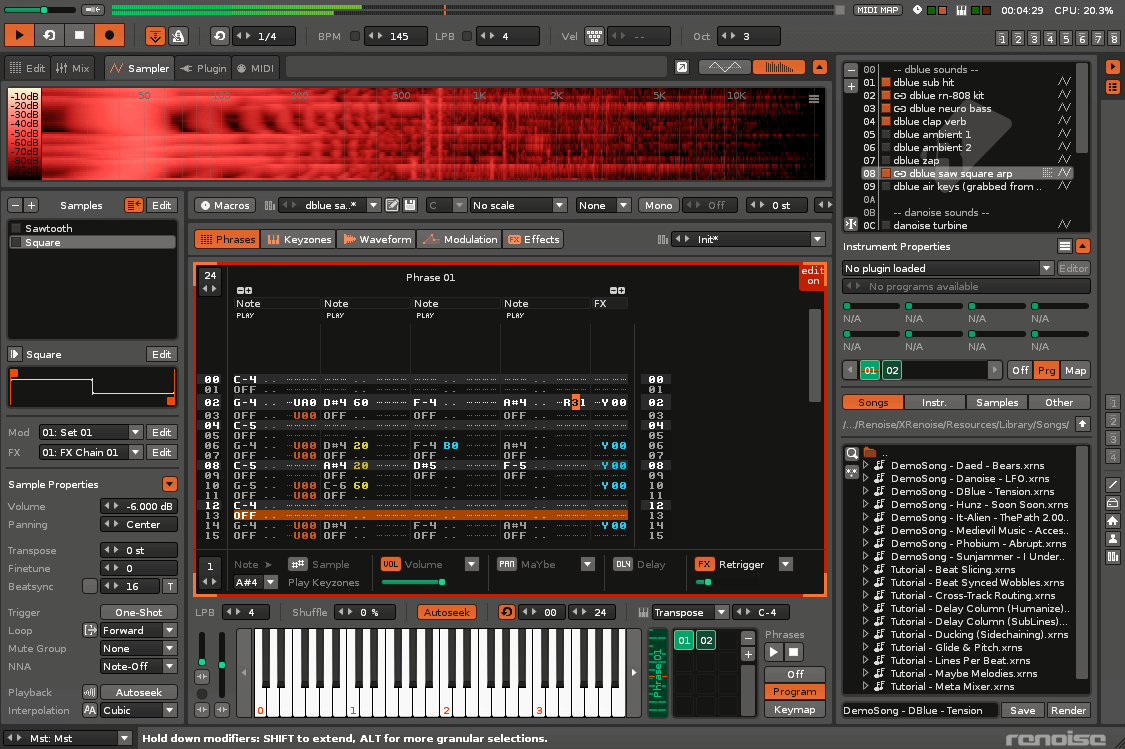
12. Virtual DJ [Not Open Source]
Virtual DJ is a premium, powerful, widely used, feature-rich, and highly-configurable music-mixing software. Many DJ hardware devices such as those from ‘Pioneer’ include built-in support for ‘Virtual DJ’. Unfortunately, the Virtual DJ is designed to run on Windows and Mac OS X only.
To run a Virtual DJ on GNU/Linux, you can use Wine, a tool that lets you run some of MS Windows software on GNU/Linux.
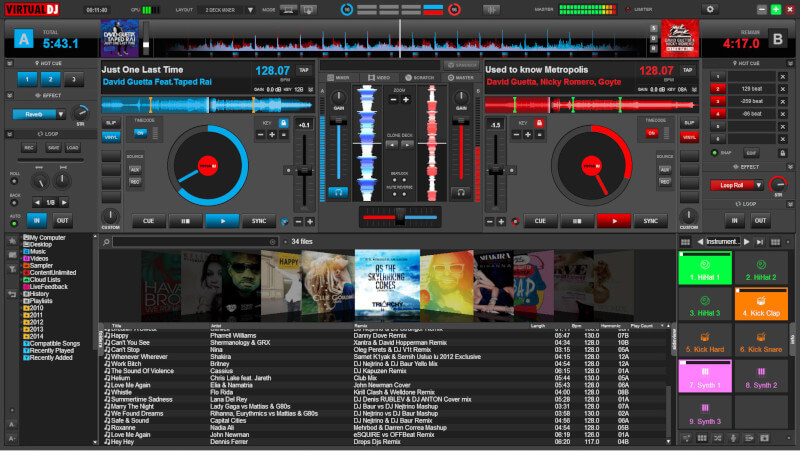
13. Aria Maestosa
Aria Maestosa is a free and open-source midi sequencer and editor for Linux, that enables you to compose, edit and play midi files with a few easy clicks in a user-friendly interface providing a score, keyboard, guitar, drum, and controller views.
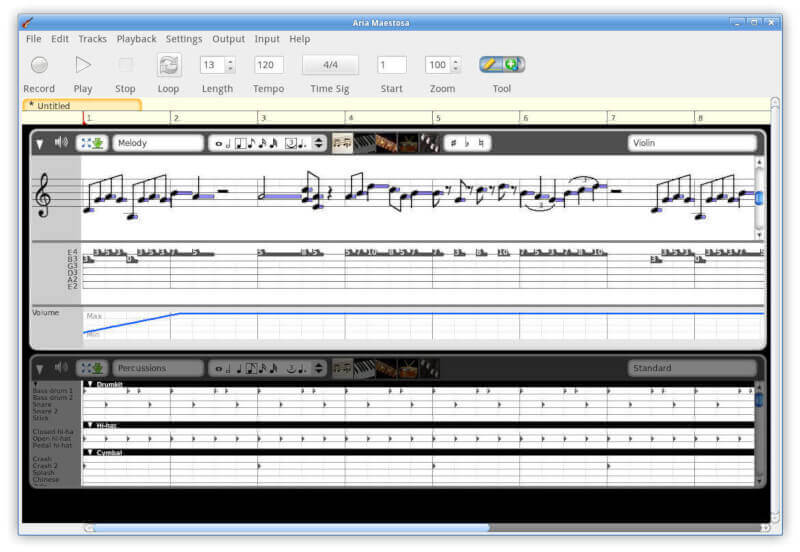
14. MusE
MusE is a Musical Instrument Digital Interface (MIDI) and Audio sequencer with support for recording and editing capabilities created by Werner Schweer now developed and maintained by the MusE development team.
It aims to be a comprehensive multitrack virtual studio for the Linux operating system and it is released under the GNU General Public License.
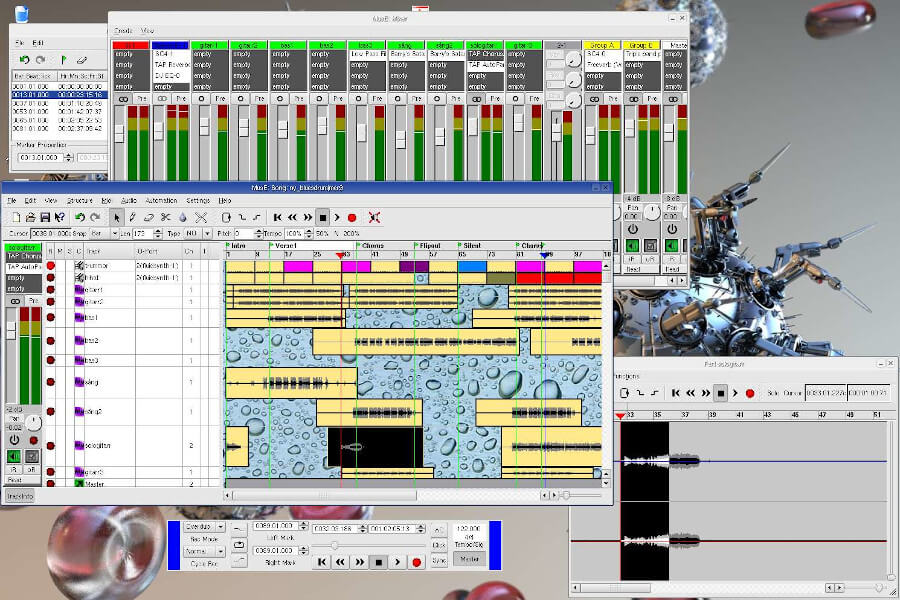
15. Reaper
Reaper is a powerful and popular digital audio production tool for editing music, recording, processing, mixing, and other audio projects.
The application is also cross-platform and is created by Cockos. It plays a vital role in most of the industry-standard plugin formats such as VST and AU.
The following are some key features:
- Productive and loads fast.
- Install and run the application easily from a portable or network drive.
- Simply drag and drop to import, arrange, and render.
- It is fully customizable.
- Easily switch between the layouts as needed for different tasks.
- A simple nested folder system allows group editing, routing, and bussing, all in one step.
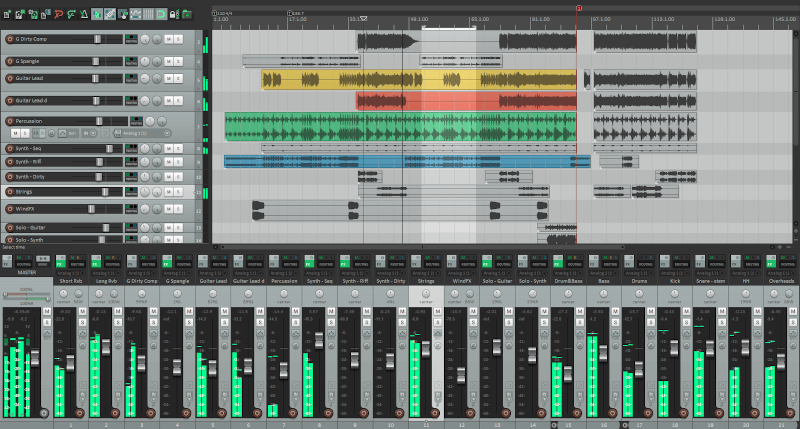
Summary
There are a lot of music-making and mixing software out there for the Linux operating system, we have just looked at a few. You can let us know what you are using by leaving a comment or giving some additional information on the ones we have looked at.

